Business that transcends crisis
The mattress, the main competition
Ingot’s plans are ambitious: it aims to open a branch per semester, not only in the City but also in several provinces, and does not rule out other countries, such as Uruguay, where they will soon open the doors in Montevideo and Punta del Este. In this last location, under the STROM INGOT brand with a unique robotic service in the region located in the Enjoy hotel (former Conrad).
In each new unit, he expects to add 100 clients per month. If expectations are met, by the end of 2020 it will count three branches and more than 3,500 rented safe deposit boxes.
However, these subsidiaries will not be like the central house (that is, a multi-storey building, administrative offices and four vaults). Instead of 1,000 square meters, they will have 100. The first one will be released in January, in the Comega building, on Corrientes and Alem Avenue, in the center of Buenos Aires. The second, in Parque Leloir, west of Greater Buenos Aires.
These branches will have “robotic vaults” and can be thought of as an ATM inside a building. These are automated subsidiaries that allow operating at any day and time and to which you enter with a PIN. Obviously, to have access to the chest, the biometric data check is required.
“There is a tendency in the world to self-service to operate when and how you want,” says Piantoni.
Physical vault for virtual money
The company’s landing comes with innovation: the first device vault crypto wallet from the country. It is a space for the storage of virtual purses in the form of pen drives acquired by those who invest in digital currencies to keep their public keys (similar to the bank CBU) and private (such as the ATM PIN).
As they are not connected to the Internet, they cannot be penetrated by hackers. In addition, these facilities could be used to protect hard drives, tokens, pen drives and other devices. In the case of virtual currency purses, they have special value since it is the only way to access digital currencies. These crypto wallets It will be located in a box-shaped vault, surrounded by aluminum and inside a Faraday cage to prevent the activation of magnetic fields.
“For me, these currencies are the currency of the future and more and more people are betting on them. I wanted to combine a virtual business model with a physical place, because beyond everything can be left in the cloud or in a blockchain code , we have already seen that technology is not free from failures, “says Piantoni.
Individual access is carried out under the same security standards as to enter the vaults of companies, boxes for individuals and art. The company also offers an application that works as a “digital vault”, where customers can save their passwords instead of in insecure places, such as cell phone notebook.

